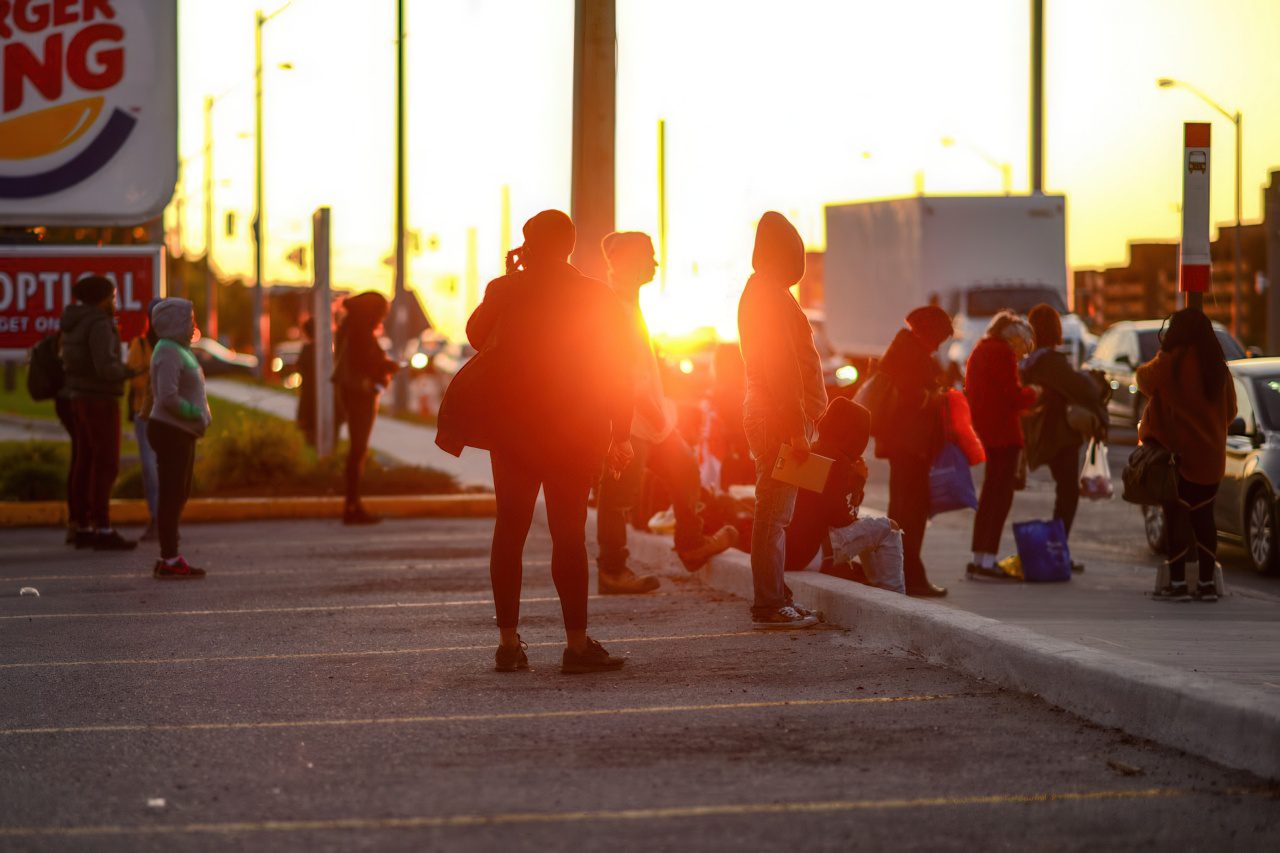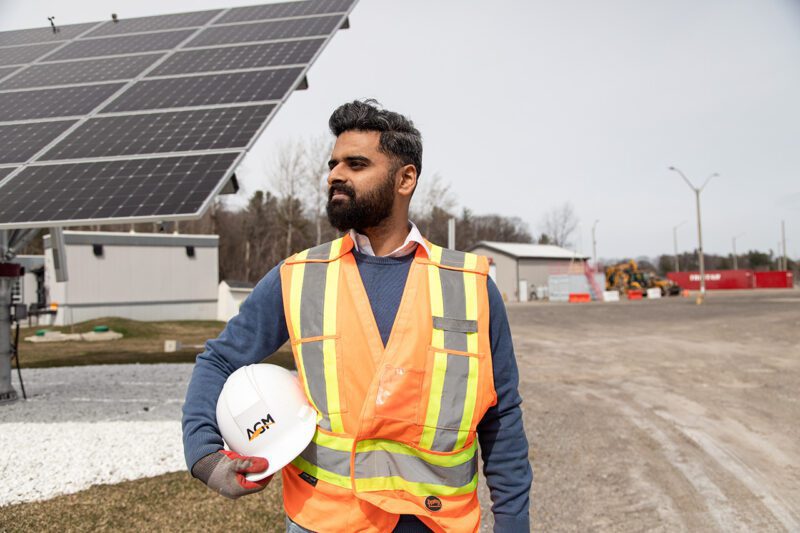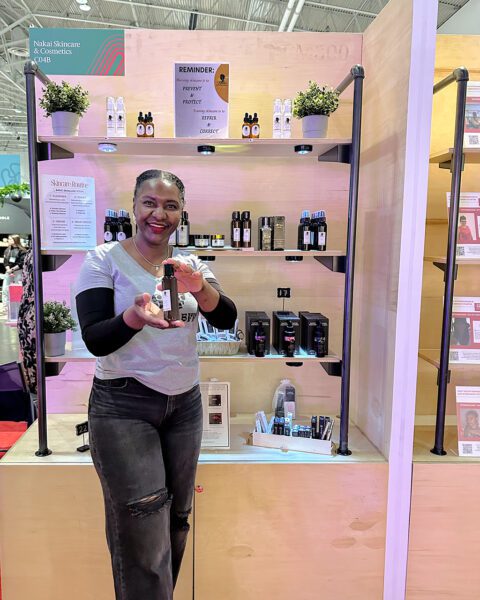Sovereign Seeds: Reclaiming MENA’s Agricultural Future
Reviving local food systems and unlocking rural prosperity
Inside Toronto's groundbreaking ILEO initiative

Photo courtesy United Way Greater Toronto.
“I began questioning my qualifications, my worth, and spiraled into feelings of worthlessness. This feeling was magnified during the times when the house was empty and everyone — including my wife and her family — had left for work, while I sat at home feeling stagnant and unproductive.”
These were the thoughts of Syed Jafri, a 29-year-old newcomer from Pakistan who arrived in Toronto in December 2021. Despite holding an undergraduate degree in electrical engineering, a master’s in project management, and experience in human resources and quality assurance, his job search in Canada proved deeply discouraging. With no interviews and mounting self-doubt, he took a part-time job delivering food on an e-bike in freezing winter conditions.
His life began to change when he connected with The Neighbourhood Organization (TNO), a local service agency in Scarborough. There, he discovered the Inclusive Local Economic Opportunity (ILEO) initiative.
In May 2022, Syed enrolled in a free, six-week training program in construction trades designed for newcomers with no prior experience. Following the training, he began a two-month paid placement with the Aecon Golden Mile Joint Venture (A-GM JV), earning certifications in ten trade specialties. Today, Syed is a full-time project coordinator at Aecon and plans to pursue his Project Management Professional certification.

Syed Jafri from the Aecon Golden Mile Joint Venture. Photo courtesy United Way Greater Toronto.
“Working at Aecon inspires confidence in my ability to advance both academically and professionally. Through resources like Aecon University and on-the-job training, I am continually improving my skills and expanding my expertise,” he said. “I’ve met many coworkers who began in labor roles and progressed into managerial positions, which shows the potential for growth within the company.”

Storefront Starter Entrepreneur Magdalene Lafontant at the One of a Kind Show. Photo courtesy United Way Greater Toronto.
Syed’s story is just one example of the transformative potential behind ILEO. The initiative, born out of a 2018 conversation between Daniele Zanotti, then-President and CEO of United Way Greater Toronto, and Darryl White, CEO of BMO Financial Group, was sparked by a straightforward question: what are the biggest challenges in Toronto’s neighborhoods?
Zanotti answered without hesitation: job access and economic development. From that conversation, a vision was born to leverage corporate resources to address local inequities amid neighborhood redevelopment.
What emerged was a multi-stakeholder initiative that now serves as a model for inclusive economic opportunity. BMO and United Way convened a Corporate Leadership Table of 15 CEOs, later joined by leaders from community agencies, foundations, and government. Together, they identified the Greater Golden Mile (GGM) in Scarborough as the ideal pilot site. Slated for massive real estate development — 32,000 residential units, 76 mid- and high-rise buildings, and over 40,000 new residents — the area also encompasses five neighborhoods home to 93,000 residents with disproportionately low incomes and high percentages of racialized and newcomer populations.

Syed Jafri and colleagues from the Aecon Golden Mile Joint Venture. Photo courtesy United Way Greater Toronto.
To ensure redevelopment included, rather than displaced, local residents, ILEO launched four pilot projects:
Together, these pilots have returned over $13 million in value to the community since 2021. But these figures only tell part of the story. The initiative also represents a reimagining of corporate-community partnerships, in which residents are not passive beneficiaries but active co-creators of neighborhood revitalization.
What does it take to ensure economic opportunity is inclusive and regenerative?
The collaborative nature of ILEO’s model has required more than funding. It has demanded sustained commitment, shared decision-making, and a new kind of trust among sectors that often operate in silos. Success has hinged on creating structures — like the A-GM JV — where economic value is not extracted but cycled back into community infrastructure.

2025 participants from the Storefront Starter program. Photo courtesy United Way Greater Toronto.
Challenges remain. Aligning timelines between corporate and community stakeholders, translating cross-sector jargon, and maintaining momentum across years of development require ongoing negotiation. Yet the ILEO model offers a compelling example of how systems change can begin with a conversation, grow through collaboration, and manifest in real, measurable impact.
As redevelopment continues across Toronto and beyond, ILEO raises a vital question: what does it take to ensure economic opportunity is inclusive and regenerative? For Syed Jafri, and dozens like him, the answer lies in programs that don’t just train for jobs, but build careers, confidence, and community ownership.
And perhaps, that is the blueprint for an economy — and a city — that truly works for everyone.
Related Content
Comments
Deep Dives

Featuring
Clarisse Awamengwi
IE Correspondent
July 17 - 12:00 PM EST

Featuring
Russell McLeod
July 24 - 12:00 PM EST
RECENT
Editor's Picks
Webinars
News & Events
Subscribe to our newsletter to receive updates about new Magazine content and upcoming webinars, deep dives, and events.
Become a Premium Member to access the full library of webinars and deep dives, exclusive membership portal, member directory, message board, and curated live chats.
At Impact Entrepreneur, we champion fearless, independent journalism and education, spotlighting the inspiring changemakers building the Impact Economy. Diversity, equity, sustainability, and democracy face unprecedented threats from misinformation, powerful interests, and systemic inequities.
We believe a sustainable and equitable future is possible—but we can't achieve it without your help. Our independent voice depends entirely on support from changemakers like you.
Please step up today. Your donation—no matter the size—ensures we continue delivering impactful journalism and education that push boundaries and hold power accountable.
Join us in protecting what truly matters. It only takes a minute to make a real difference.
0 Comments